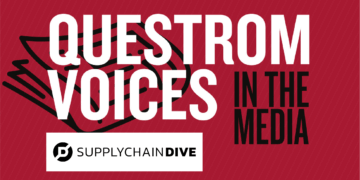Greg Stoller, Master Lecturer of Strategy and Innovation at Boston University’s Questrom School of Business, offers insights into how the world of digital marketing continues to evolve, with the lines between traditional celebrity influencers and politicians increasingly blurring. While influencers typically earn money through sponsored posts, high-profile figures like Donald Trump bring this to an entirely new level. Some reports suggest that Trump could command up to $300,000 per post as an influencer, a number that seems feasible depending on the media platform and level of engagement. But the question isn’t just about Trump, it’s about the broader trend of politicians and celebrities shaping this space in unprecedented ways.
Politicians: A New Class of Influencers
Unlike traditional influencers, politicians already come with a massive built-in following and a platform that is often more influential than a celebrity’s. Trump is not the only politician who could thrive in this role; figures like Barack Obama and Alexandria Ocasio-Cortez have effectively used social media in ways that resemble influencer marketing. These politicians wield significant power, not just in shaping opinions but also in moving products and promoting brands. For example, if a politician subtly mentions or uses a product, it could lead to enormous brand visibility, similar to the way Oprah’s Favorite Things has driven sales for years.
However, politicians as influencers raise several ethical and legal concerns. The New York Times reported in 2022 that campaigns were skirting political ad rules by paying influencers directly. If a sitting or campaigning politician were to promote a product, it would invite scrutiny over whether this constitutes a misuse of public office. Citizens for Responsibility and Ethics in Washington (CREW) highlighted this issue in 2017, warning that such practices blur the lines of ethical conduct. The risks are particularly high in the current environment of deep fakes and misinformation, making it crucial to ensure authenticity in what politicians post.
The Financial Stakes
Trump’s financial potential as an influencer is not just theoretical; it could serve as a way to solve some of his mounting financial problems. While Trump’s $4 billion hit from Truth Social is a setback, his reach on other platforms remains powerful. The example of Bill Clinton, who earns $750,000 per speaking engagement, shows that former presidents can monetize their influence in ways that go beyond traditional politics. However, if Trump or any politician were to reference a product while campaigning or serving in office, it might not sit well with the public. The financial gain could be immense, but the legal and ethical implications could prove to be a major hurdle.
Celebrity Influence and the Power of Public Perception
The role of celebrities as influencers has long been established, but figures like Anna Sorokin (aka Anna Delvey) add complexity to this dynamic. Despite her criminal past, Sorokin’s appearance on Dancing with the Stars garnered record-breaking viewership. Her popularity, despite – or perhaps because of – her controversial past, highlights the fickle nature of fame and influence. In today’s landscape, public figures can gain traction even after scandals, as audiences become increasingly fascinated by polarizing personalities.
As more politicians and controversial figures enter the influencer economy, they are likely to face both financial opportunities and challenges that will shape the future of digital marketing and public life. The question isn’t just how much Trump – or any other politician – could make, but whether they can navigate the ethical pitfalls of this brave new world.


























